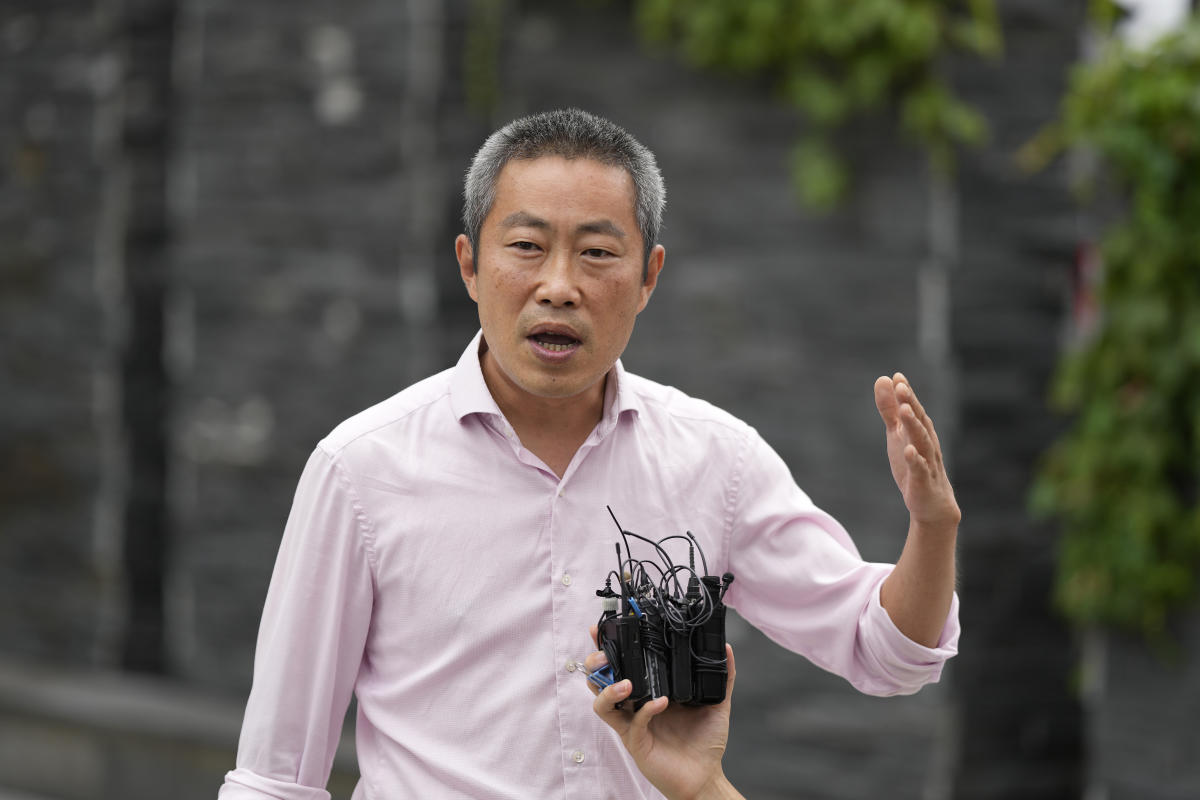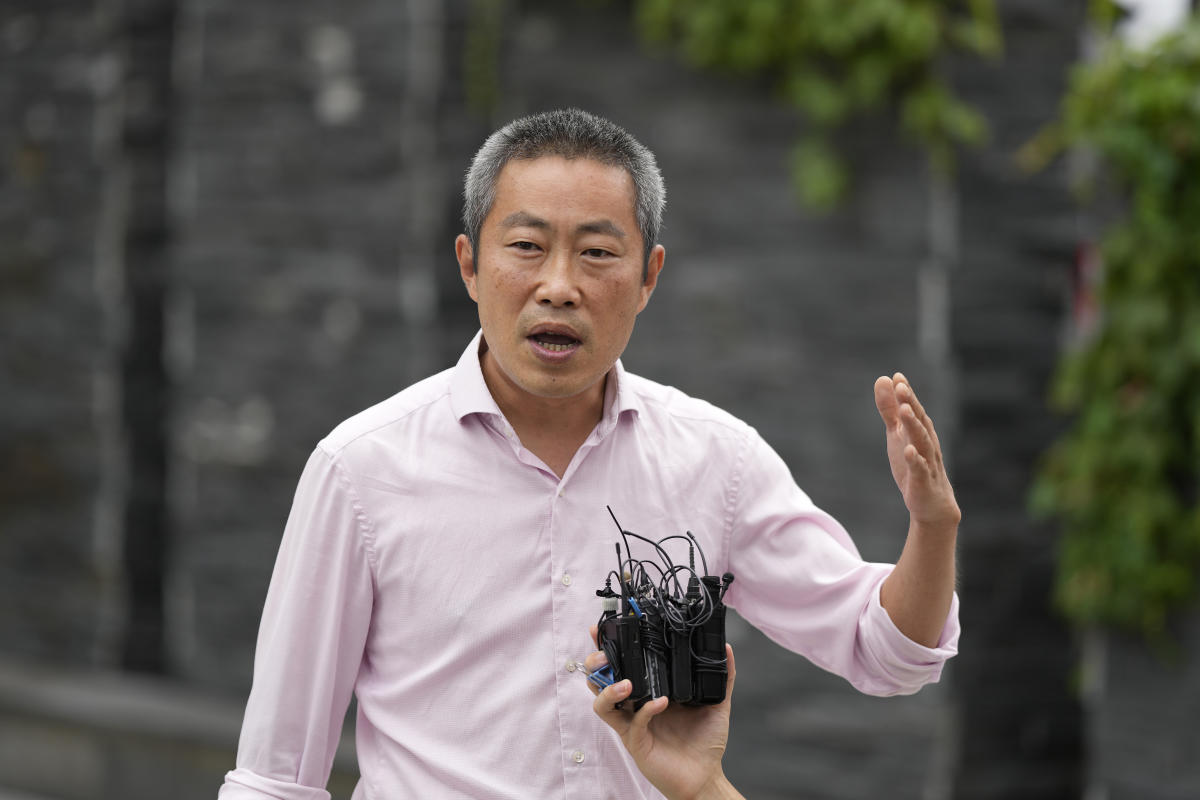
SEOUL, South Korea (AP) — Dozens of South Koreans adopted by Danish parents decades ago have formally demanded the South Korean government investigate their adoptions, which they say were marred by widespread practices that falsified or obscured children’s origins.
The Truth and Reconciliation Commission in Seoul has up to four months to decide whether to accept the application collectively filed Tuesday by the 53 adoptees. If it does, that could possibly trigger the most far-reaching inquiry into foreign adoptions in the country, which has never fully reconciled the child export frenzy engineered by past military governments that ruled from the 1960s to ’80s.
The application cites a broad range of grievances emphasizing how scores of children were carelessly or unnecessarily removed from their families amid loose government monitoring and a lack of due diligence.
Perhaps more crucially, the country’s special laws aimed at promoting adoptions practically allowed profit-driven agencies to manipulate records and bypass proper child relinquishment.
Most of the South Korean adoptees sent abroad were registered by agencies as legal orphans found abandoned on the streets, although they frequently had relatives who could be easily identified and found. This made the children more easily adoptable as agencies raced to send more kids to the West at faster speeds.
“None of us are orphans,” said Peter Møller, attorney and co-head of the Danish Korean Rights Group, as he described the group’s members who filed the application.
“(In) a lot of papers, the Korean state at the time have stamped papers that say people were found on the streets. If you do a little bit of math, that would mean that from the 1970s and 1980s Seoul would be flooded with baskets with children lying around in the streets. … Basements will be filled with lost child reports at police stations.”
Møller, who was adopted to Denmark in 1974, said about 50 more of the group’s members are expected to join the application and that he plans to come back to South Korea with their files in September.
The complaints by adoptees who filed the application include inaccurate or falsified information in adoption papers that distort their biological origins, such as wrong birth names, dates or locations, or details about birth parents.
Some of the adoptees say they discovered that the agencies had switched their identities to replace other children who died or got too sick to travel to Danish parents, which made it highly difficult or often impossible to trace their roots.
The adoptees called for the commission to broadly investigate the alleged wrongdoings surrounding their adoptions, including how agencies potentially falsified records, manipulated children’s backgrounds and origins, and proceeded with adoptions without the proper consent of birth parents. They want the commission to establish whether the government should be held accountable for failing to monitor the agencies and confirm whether the uptick in adoptions was fueled by increasingly larger payments and donations from adoptive parents, which apparently motivated agencies to create their own supply.
The adoptees also called for the commission to push Holt Children’s Services and the Korea Social Service — the two agencies that sent kids to Denmark — into providing full access to the entirety of their adoption documents and background information. They also say all those records should be transferred to government authorities handling post-adoption services to prevent the information from being destroyed or manipulated.
South Korean adoptees for years have been criticizing agencies over what they see as a lack of transparency and an unwillingness to open records. Møller said some adoptees in Denmark remain reluctant to join the application out of fear that the agencies might destroy their records.
Holt didn’t answer repeated calls seeking comment. The KSS deferred all questions to Holt, the bigger agency.
Holt already has an ongoing legal battle with U.S. adoptee Adam Crapser, who in 2019 filed a 200 million won ($150,000) damage suit against the agency and the South Korean government for failing to follow through on his adoption and ensure that his American parents naturalized him. After being abused and abandoned by two different sets of American parents, Crapser was deported in 2016 following run-ins with the law because none of his guardians filed citizenship papers for him.
The Danish adoptees initially considered filing a lawsuit against the agencies or South Korean government before dropping the idea because South Korean law puts the burden of proof entirely on the plaintiffs in civil cases. If the truth commission decides to investigate the adoptions, its findings could later be used by adoptees in possible damage suits against the agencies or government, said Philsik Shin, a Seoul-based scholar who helped the adoptees prepare the application.
About 200,000 South Koreans were adopted overseas during the past six decades, mainly to white parents in the United States and Europe. Denmark was one of the biggest destinations for South Korean children in Europe, receiving about 9,000 adoptees — most of them from the 1960s to late 1980s when South Korea was ruled by consecutive military governments.
During the height of the adoptions in the late 1970s and mid-1980s, agencies aggressively solicited newborns or young children from hospitals and orphanages, often in exchange for payments, and operated maternity homes where single mothers were pressured to give away their babies. Adoption workers toured factory areas and low-income neighborhoods in search of struggling families who could be persuaded to give away their children.
The agencies were run by board members close to military leaders, who saw adoptions as a tool to reduce the number of mouths to feed and the remove the socially undesirable, including children from unwed mothers. Adoptions were also aimed at deepening ties with the democratic West amid a fierce regime competition with rival North Korea, according to the military governments’ documents obtained by AP.
It wasn’t until 2013 when South Korea’s government required foreign adoptions to go through family courts, ending a decadeslong policy of allowing private agencies to dictate child relinquishments, transfer of custodies and emigration.




